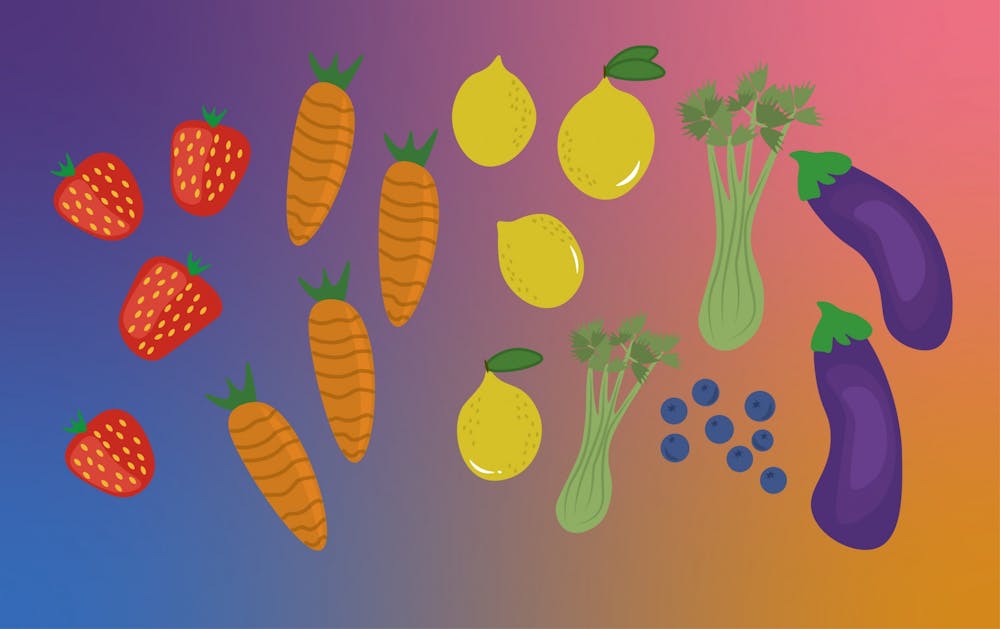At the start of this year, the ASU club Food For Change started an initiative to focus on helping make ASU campuses interactively sustainable, fight food insecurity and support local food culture.
Food For Change's goals stem from ideas about sustainable food systems and building communities where we can improve our relationship with food. These goals help us understand that our interactions with food have a broad scope of impact while also acknowledging that it can be difficult to understand what food sustainability means.
According to the International Center for Tropical Agriculture (CIAT), sustainable food systems can be defined as an "aim at achieving food and nutrition security and healthy diets while limiting negative environmental impacts and improving socio-economic welfare."
Natalie Morris, a program coordinator at the Edson College of Nursing and Health Innovation and a graduate student studying history, said that sustainable food systems are used to understand the processes behind our food.
Morris said that the processes can become quite complex and can include issues regarding soil composition, seed origin, transportation, conditions of working people and food distribution. Morris then said all of these processes have to be inherently sustainable.
"There is no disconnection between food and sustainability," Morris said. "It's a necessity."
Mastura Safayet, a graduate student studying urban and environmental planning, said, "access to food is a challenge for many people, especially racial minorities and those who live in low-income or rural areas."
Safayet said people suffer from food insecurity because there is lack of and difficulty in accessing fresh and healthy food, which is caused by issues such as unequal food distribution, mobility constraints and affordability in local or commercial markets.
The access and availability of food are important because they relate to the values that all people have and how they affect their relationship with food.
Morris said that our values determine how we interact with food. An example of this is when someone makes a decision about their food based off values such as caring about whether people working in the food system are being paid a livable wage.
Frances Craik, a Food For Change officer and junior studying urban planning, said the club's goals are to make an impact surrounding how people want to interact with food.
"We want to change people's perspectives around food," Craik said. "(And) create a local food system for both ASU students, staff and Tempe community to tap into as a full circular food economy."
They plan to accomplish their goals by planting edible gardens where there are flower beds around campus. Craik also said the desired circular food economy would have the potential to answer problems some students may face.
"Being able to eat in the dining halls is a privilege that all students may not have," Craik said.
Providing public vegetable beds on campus fights food insecurity because students can walk by and grab a vegetable on their way to class for a snack or for dinner.
"We're really examining how we can make what's not been done right, better," Morris said.
Going forward, Craik said the club intends to reach out to residence hall leaders and expand to cultural interests. She also said that because everybody is connected to food in some way, a momentum could easily build up behind the initiative.
Community is also seen as a force that will keep the club going because of people's personal relationships with food. Morris said food is good at building communities because of the traditions that can be made with it.
Morris said that the smaller efforts, including these gardens, contribute to the bigger picture of wanting to take care of the planet and be able to celebrate with friends over food. It all comes down to "fighting for what we want to keep."
Reach the reporter at czuniga9@asu.edu and follow @celzuniga on Twitter.
Like The State Press on Facebook and follow @statepress on Twitter.




